Is 'Diamond Dogs' David Bowie’s Greatest Album?
On its 50th anniversary, let's dissect the icon’s eighth studio album to try to understand what makes it such a work of postmodern rock genius - and what other kinds of storytellers can learn from it
David Bowie’s eighth studio album Diamond Dogs — released fifty years ago on May 24th — rarely becomes a subject of conversation amongst the Bowie fanatics I know, even though I have come to believe it is his greatest album. Let’s discuss why, as it’s an artwork that offers many thoughts on how to challenge and even blow up your own creative processes to spectacular effect.
Diamond Dogs is a mash-up of Bowie’s glam theatricality, George Orwell’s novel Nineteen Eighty-Four, and a cut-up narrative style familiar to William S. Burroughs fans. The result of this is a raw, dark, and apocalyptic musical landscape accompanied by puzzle-like lyrics that, only upon obsessive listening, begin to assemble into a musical treatise against fascism and, in particular, Bowie’s fear of the rock star (himself).
Bowie even conflates fascism with the power that rock stars hold over audiences. For example, “Rock ‘N’ Roll with Me” (one of my favorite songs on the album) is a ballad from a musical dictator to his followers. It feels like a music video directed by Leni Riefenstahl.
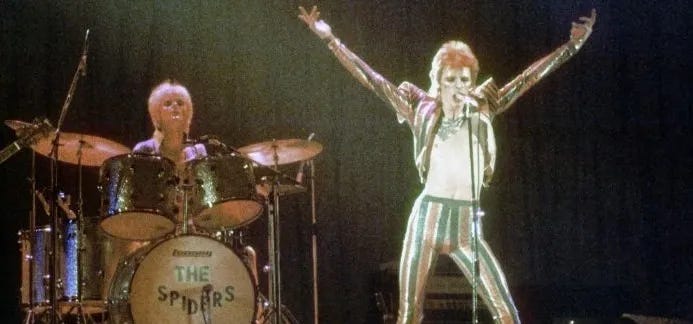
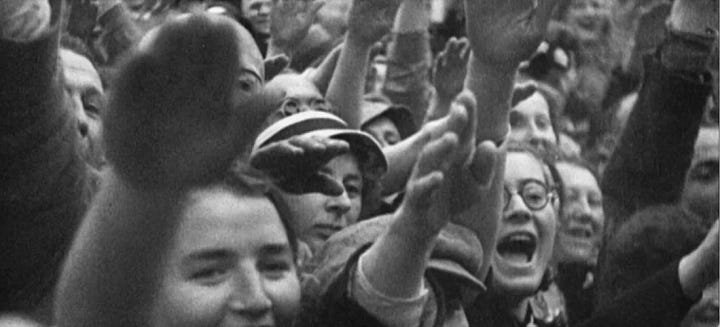
Next, consider the lyrics to Diamond Dog’s “Big Brother” after Bowie has already lyrically conflated the rock star with Orwell’s Big Brother (Diamond Dogs began life as an early attempt to turn 1984 into a musical before this project was abandoned and he reworked his lyrics using Burroughs’ cut-up style):
“Please savior, savior, show us
Hear me, I’m graphically yours
Someone to claim us, someone to follow
Someone to shame us, some brave Apollo
Someone to fool us, someone like you
We want you Big Brother, Big Brother”
Smarter people than I have tackled the genius of this album (I’d recommend Glenn Hendler’s 33 1/3 book on the subject), but, for me, I think I’m most fascinated by how Diamond Dogs appears to be about a rock star so anxious about his influence that he regularly creates identities only to kill them before they get too godlike.
In this regard, you can look at Diamond Dogs as a kind of confession by Bowie to all the murders of his previous personas and all the murders still to come.
But, I also think Diamond Dogs is Bowie having a conversation with himself about what his art means to him, how scared he is of it, and, in particular, fame - the dissonance between a Brixton lad named David Jones and the rock star David Bowie he eventually became.
Many great artists choose to have these conversations with audiences, making them active participants in the experience — and that’s certainly happening here — but Bowie’s focus seems to primarily be on himself here.
In other words, Diamond Dogs is one of his most personal albums.
So, is Diamond Dogs David Bowie’s greatest album?
That’s a wholly subjective question, but it’s easily one his most meta-textually complicated works and, in my opinion, a work of postmodern rock genius. Any storyteller could learn a lot by interrogating it at length. Give it a go on vinyl if you can; you won’t regret it, I promise.
If this article added anything to your life but you’re not up for a paid subscription, please consider buying me a “coffee” so I can keep as much of this newsletter free as possible for the dreamers who couldn’t afford it otherwise.
If you enjoyed this article, you might also enjoy these other ones from 5AM StoryTalk:




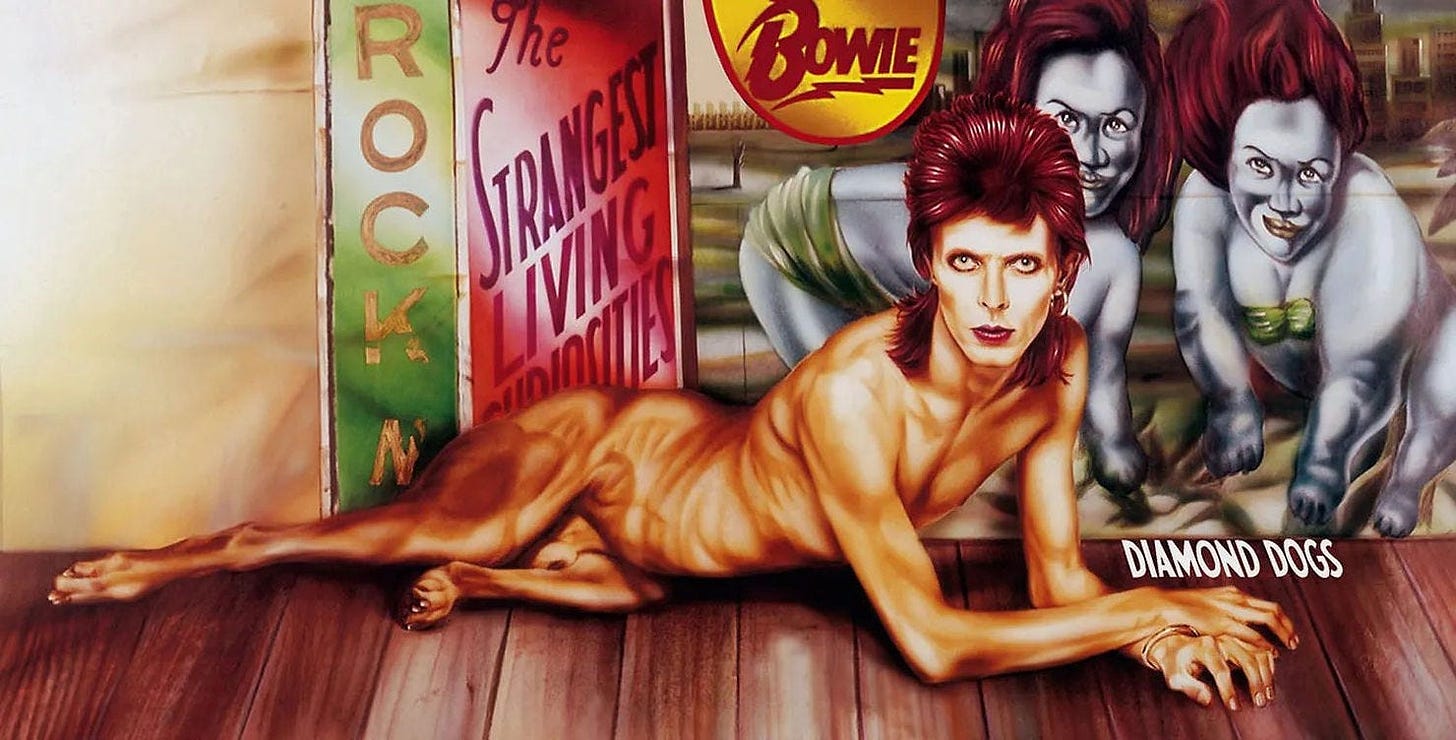
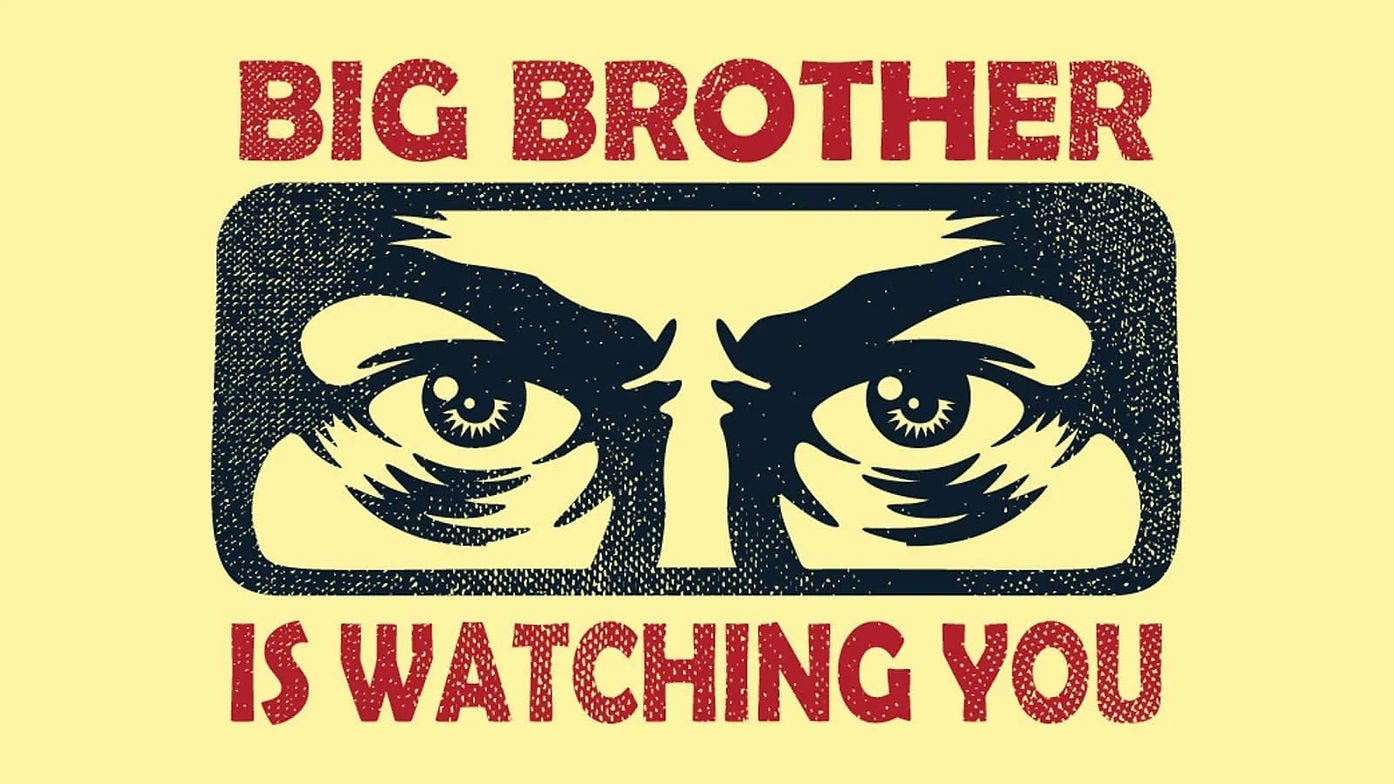
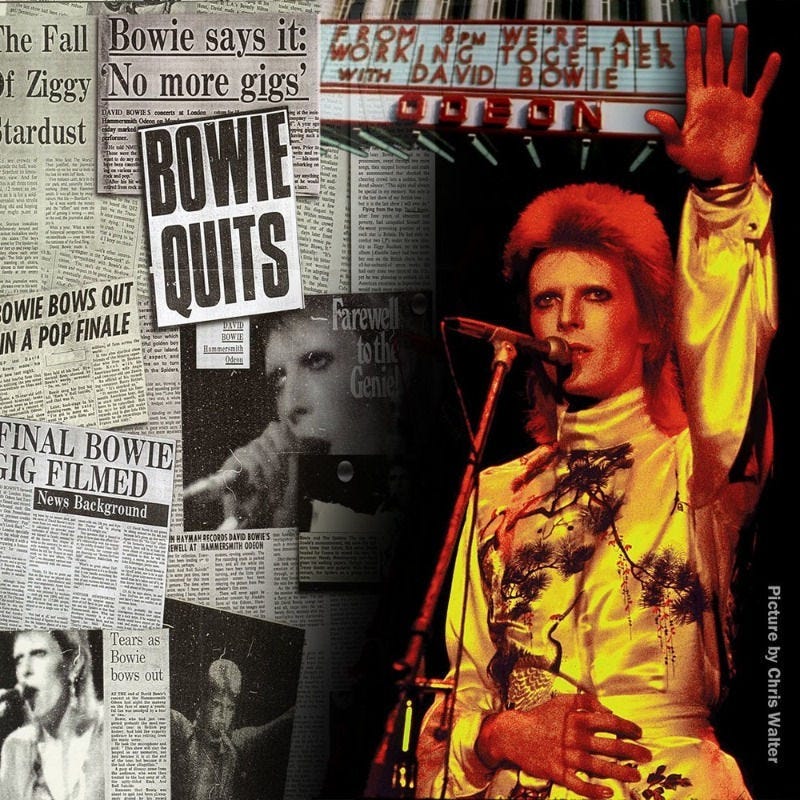
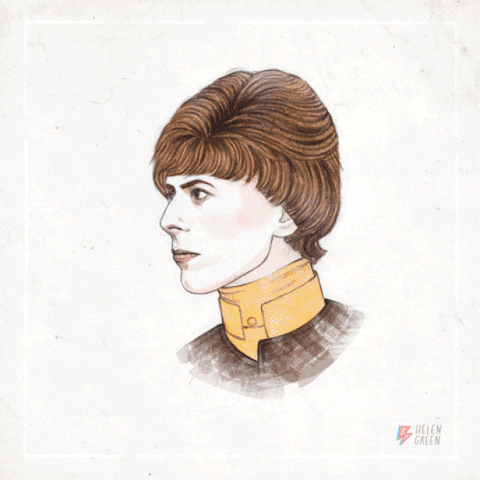
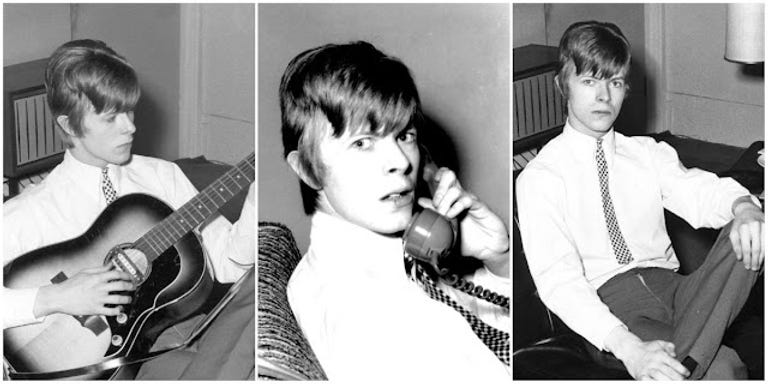
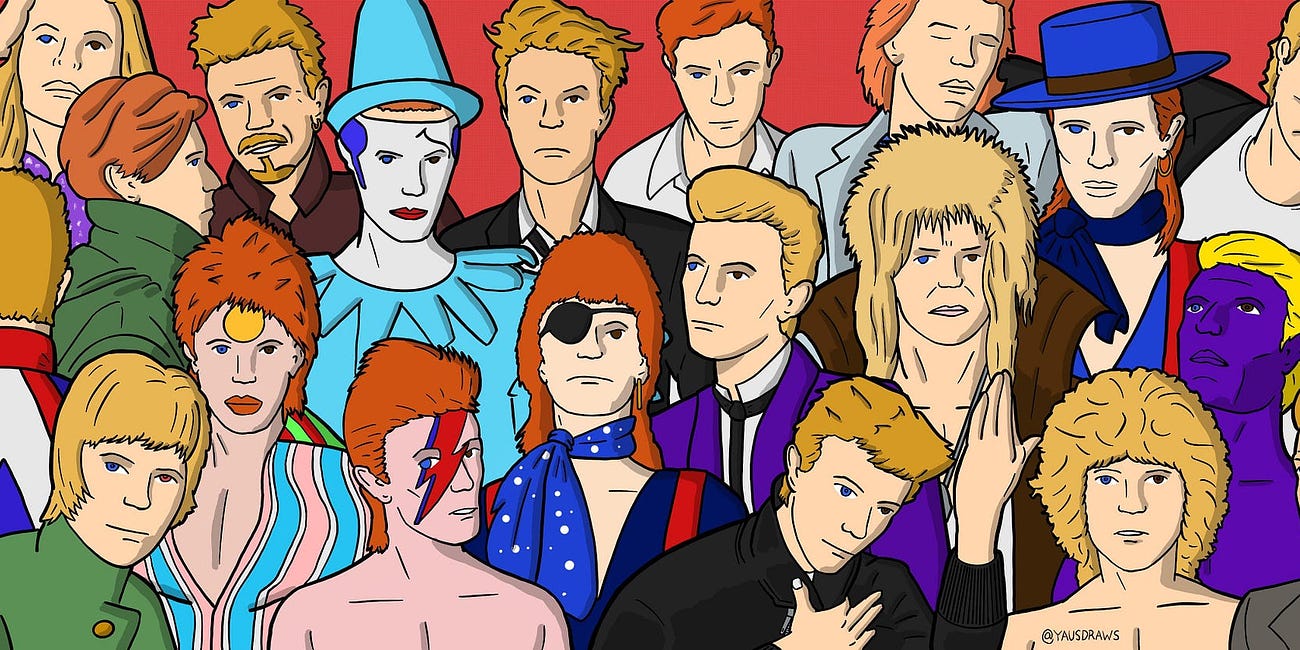
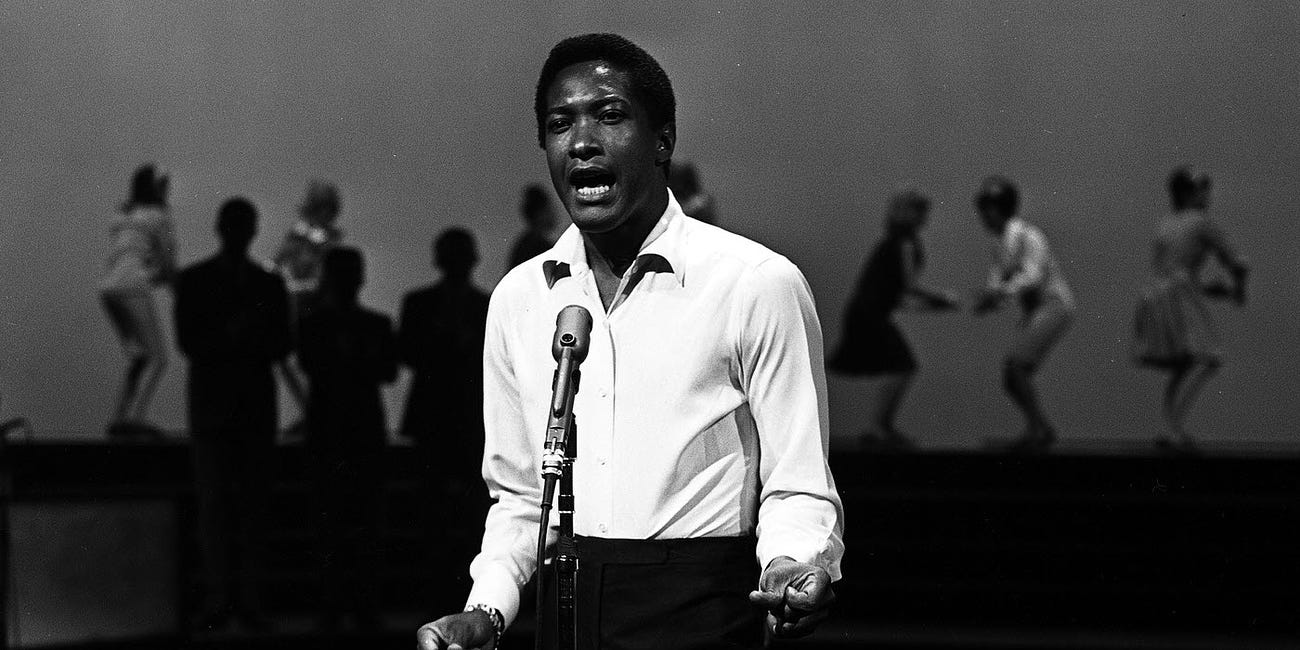
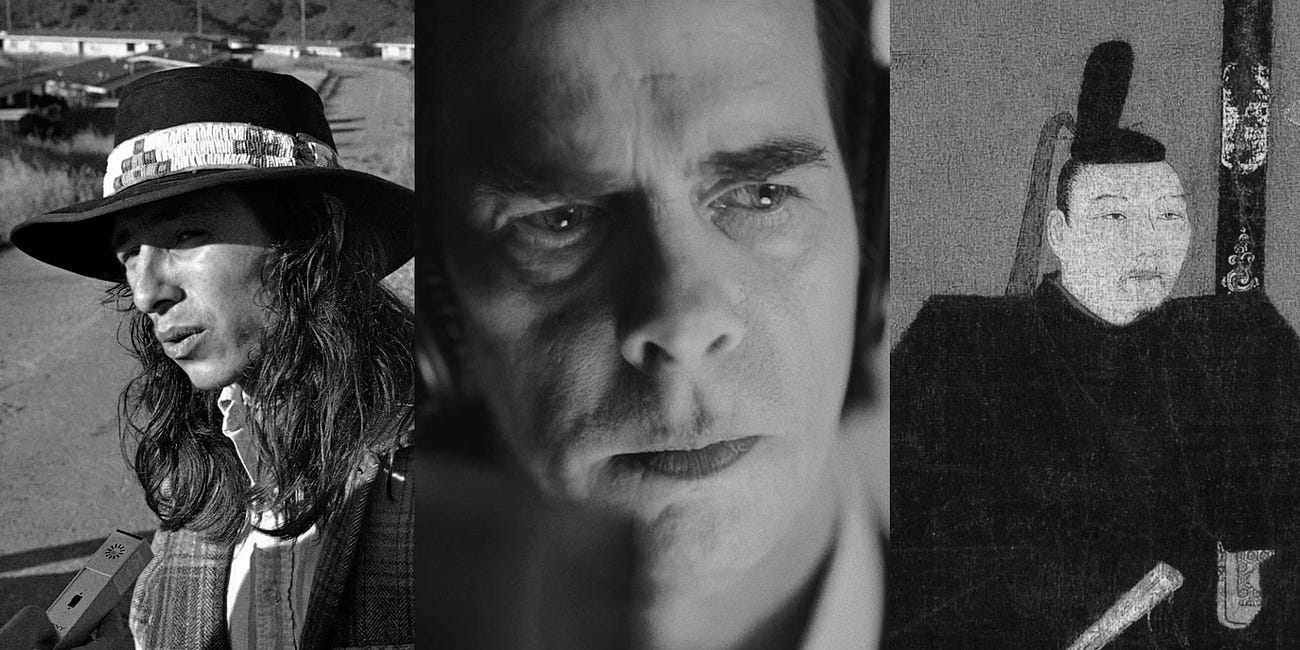
First, this article is blasphemy because every Bowie album is his best and now you have put your soul in danger of damnation, second, you’re spot on I think (and i didn’t notice this before) that it is a conversation with himself about who he is ... I was always impressed with the honesty of Rebel Rebel in which he ironically distances himself from the knee-jerk rebellion that he as a rock star represents and fuels (but also loves). Good appraisal thanks
I love this album.